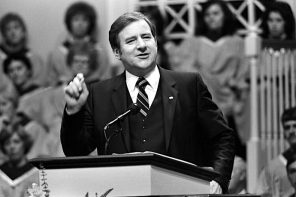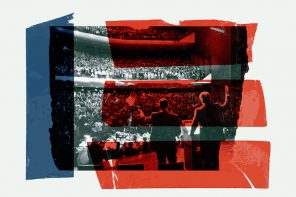According to a recent article on the Christianity Today Web site, leaders of the Religious Right are taking exception to the nomenclature that others use to describe them. “There is an ongoing battle for the vocabulary of our debate,” Gary Bauer, a leader of the Religious Right, told Sarah Pulliam, author of the article. “It amazes me how often in public discourse really pejorative phrases are used, like the ‘American Taliban,’ ‘fundamentalists,’ ‘Christian fascists,’ and ‘extreme Religious Right.’”
Okay, I understand the objections to “American Taliban” and “Christian Fascists.” And the modifier “extreme” may also be incendiary—though hardly, in my view, inappropriate. As a general rule of thumb, I believe that individuals and (to a lesser degree) organizations should have the prerogative to determine how they are addressed, or at least to have significant input into the determination of that nomenclature.
The movement of politically-conservative evangelicals that coalesced late in the 1970s has had several monikers: Moral Majority (the particular name of Jerry Falwell’s political organization), the Religious Right, the Christian Right, and (oddly) the New Christian Right.
The last term, “New Christian Right,” is the one that I’ve always found the most puzzling. The modifier “new” suggests that there was something, sometime in the past, that might be described as the Old Christian Right—whether or not that phrase was used. As a historian, however, I’d be hard-pressed to identify anything that fit that description. Evangelical social and political activism in the nineteenth century could never be described as listing toward the right. On the contrary, evangelical activists invariably took the part of those who were disadvantaged—women, minorities, prisoners, the poor—a predilection utterly missing from the religious right in the decades surrounding the turn of the twenty-first century.
I suppose you could apply the term “Old Christian Right” to the crusty anticommunists like Billy James Hargis or Carl McIntire, who flourished in the middle decades of the twentieth century. But they were marginal figures, even among evangelicals, and they hardly constituted a movement.
I have a personal objection to the term “Christian Right.” As a person of faith I, frankly, don’t find much that I would identify as “Christian” in the actions and agenda of the religious right: support for an unjust war, tax cuts for the affluent, and capital punishment, coupled with a refusal to denounce torture or act to retard global warming. How does this agenda square with the teachings of the One who invited his followers to love their enemies, to be peacemakers, to care for “the least of these,” and who expressed concern for the tiniest sparrow?
When I was growing up as an evangelical in the 1950s and 1960s, my mother repeatedly counseled me that when anyone asked my religion, I was to reply that I had no religion; I was a Christian. For my mother, as well as for at least a generation of evangelicals, “Christian” was a label of honor and distinction. It marked us off as followers of Jesus. Identifying oneself as a “Christian” was infinitely preferable to being merely “religious.”
Given the policies and the tactics associated with this movement of politically conservative evangelicals over the course it its thirty-year history, 1978 to 2008, the term “Religious Right” is perfectly appropriate.




